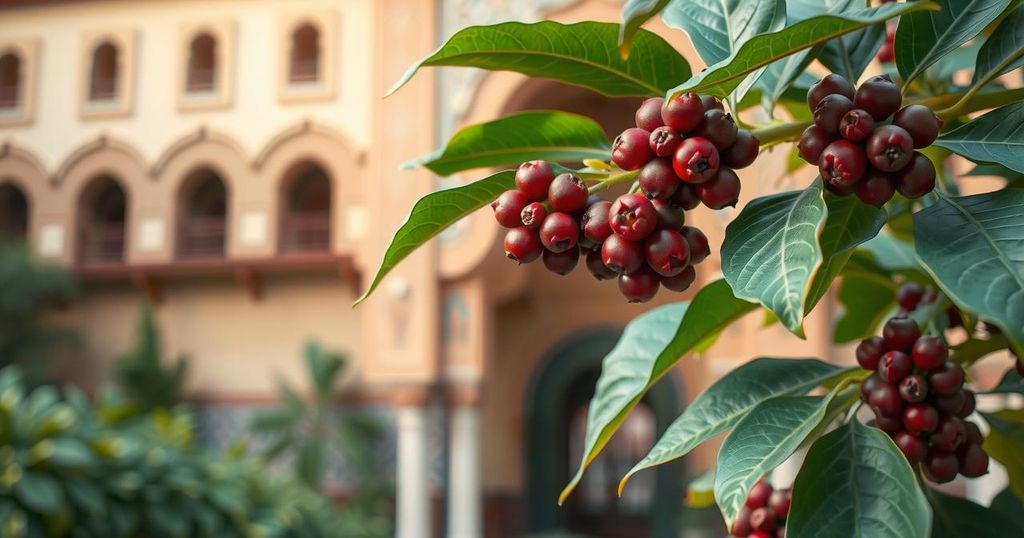Coffee Berry has opened its first outlet in Casablanca, Morocco, joining other international chains like Le Pain Quotidien and Krispy Kreme. The chain offers a diverse beverage selection, catering to a specialty coffee market on the rise. Morocco’s branded coffee shop market is experiencing rapid growth and is projected to reach 390 outlets by 2029.
Coffee Berry, an Athens-based coffee chain, has recently opened its first outlet in Morocco, situated in Casablanca. This expansion comes amidst a notable trend of international coffee chains entering the Moroccan market; Coffee Berry joins the likes of Le Pain Quotidien, Gong cha, and Krispy Kreme, all of which have made inroads within the past six months. The new store will feature an extensive beverage selection, including nine single origin coffees, tailored to meet the demands of Morocco’s burgeoning specialty coffee sector.
Established in 2016, Coffee Berry boasts over 220 locations globally, with a significant presence in Greece and Cyprus. Morocco marks the coffee chain’s third foray into the MENA region, with previous establishments in Egypt and Saudi Arabia, and represents its sixth international operation, including one location in Germany. The introduction of Coffee Berry reflects the ongoing growth in Morocco’s coffee shop landscape.
According to the World Coffee Portal’s Project Cafe Middle East 2025 report, Morocco’s branded coffee market comprises over 160 outlets, ranking it as the tenth largest in the MENA region. The market is notably competitive, led by international and domestic brands such as French chain Paul and Cafés Carrion, which operate 35 and 32 locations, respectively. Furthermore, the Moroccan coffee shop sector has experienced remarkable growth, with a 19% increase in outlets over the last year.
Dominated by foreign chains, the Moroccan coffee landscape features prominent players such as Starbucks, Dunkin’, and Caribou Coffee, collectively holding substantial market shares. Additionally, European coffee brands like Espressolab, Costa Coffee, and Boost Coffee have expanded their operations in the country within the past year and a half. This influx of international chains has invigorated the market, enhancing competition and variety for consumers.
Looking ahead, the World Coffee Portal projects sustained outlet growth in Morocco’s coffee shop market over the next five years, anticipating a rise to 390 outlets by the end of 2029. This positive forecast underscores the attractiveness of the Moroccan market for both domestic and international coffee brands, signaling a vibrant future for the coffee industry within the region.
The expansion of international coffee chains into Morocco reflects a broader trend within the MENA region, characterized by increasing consumer demand for specialty coffee. The Moroccan market, although still developing, has begun attracting notable global brands, indicating a shift in consumer preferences towards high-quality coffee experiences. This growth opportunity is being leveraged by established players and newcomers alike, contributing to the overall expansion of the coffee shop segment.
In summary, Coffee Berry’s introduction into Morocco marks a significant milestone for both the company and the Moroccan coffee shop market. As the sector continues to expand with strong competition from international chains, forecasts suggest a promising trajectory for future growth. The presence of Coffee Berry and similar establishments will likely enhance the offerings available to Moroccan consumers and stimulate further development within the industry.
Original Source: www.worldcoffeeportal.com







